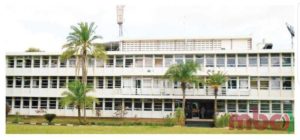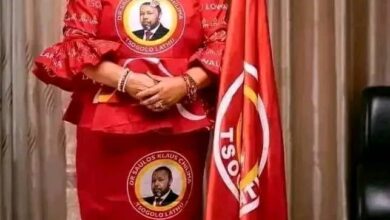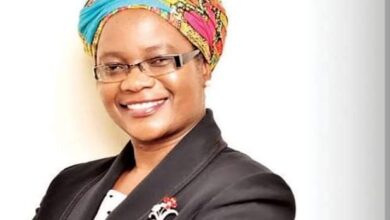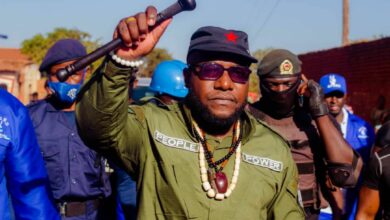News
The secure shut stop of MBC by Malawi Police Officers
By Burnett Munthali
The Malawi Congress Party (MCP) run broadcaster MBC on Tuesday 13 February 2024 firm shut its media intolerance credentials when it let loose over 36 Police officers to confiscate mobile phones and tablets of 14 journalists suspected to be members of the opposition Democratic Progressive Party (DPP). This sounds unbelievable but of course this is exactly what occurred. The heavy presence of Police around MBC premises was a source of intimidation and worry to innocent journalists.
It’s important when dealing with the opposition, though, to make sure that what you get is equal to what you give; this isn’t the time to be charitable. Make sure that your group’s overarching principles are always foremost in your mind when making a deal with a foe. Today’s opposition is likely to be the next government tomorrow. A good example is the Malawi Congress Party (MCP ) who were in opposition for 27 years but here they are today, they are in government. Thank God United Transformation Movement ( UTM) helped MCP win government through an electoral alliance and nothing else.

The main tactic of opponents of change is resistance, or the act of opposing or pushing back against change. This can manifest in various ways, such as denial of the need for change, questioning the validity of the proposed change, fear of the unknown, or even active sabotage of the change efforts.Opponents of change can come from various groups, including individuals, organizations, or even entire societies. The reasons for opposing change can vary, depending on factors such as personal beliefs, interests, or cultural norms.The key to overcoming resistance to change is to understand the underlying reasons for the resistance and to address those concerns in a thoughtful and respectful manner. This can involve clear communication, collaboration, and engagement with those who oppose the change, as well as providing opportunities for feedback and involvement in the change process.
Letting loose the undemocratic tendencies
A system, process, or decision that is undemocratic is one that is controlled or made by one person or a small number of people, rather than by all the people involved. We have had enough stories of Police impunity, abuse of power and authority simply because they think police is government and government is Police and that they can do as they please. The latest example is that of a boy whose both hands were amputated because of an overzealous police officer who tightly handcuffed the suspect the whole night in police cells.
The Department’s investigations most often involve alleged uses of excessive force, but also include sexual misconduct, theft, false arrest, and deliberate indifference to serious medical needs or a substantial risk of harm to a person in custody.
Police vehicles without number plates
It is an offence driving a vehicle without number plates. But of course there are some circumstances probably it could be vehicles of government officials sometimes are allowed to do that, more especially the intelligence and many other people which we cannot disclose here. Your number plate is an important part of your vehicle. It is a legal responsibility to make sure that you have it affixed in the right places to your vehicle at all times, and if you are found driving without them by the police then you can face a fine and that legal responsibility includes the police as well they must respect and follow the law.
Unmarked car
Unmarked cars typically use regular civilian license plates, occasionally even in jurisdictions where emergency vehicles and government vehicles use unique license plates, though some agencies or jurisdictions may be able to use the unique plates anyway; for example, law enforcement agencies may use either government plates or regular license plates. The term “undercover car” is often used to describe unmarked cars. However, this usage is erroneous: unmarked cars are police cars that lack markings but have police equipment, emergency lights, and sirens, while undercover cars lack these entirely and are essentially civilian vehicles used by law enforcement in undercover operations to avoid detection.
The close resemblance of unmarked cars to civilian cars creates concerns of police impersonation. Officers must be wearing uniforms in order to make traffic stops. Motorists can also ask for the officer’s badge and identification or call an emergency number or a police non-emergency number to confirm if the police unit is genuine. However, police officers operating from Lilongwe Area 30 to Blantyre or Lilongwe to Mzuzu in a LandCruiser without a number plate, just to follow someone whom they think it’s operating a fake Facebook page, is beyond police procedures, perhaps I should say beyond any acceptable law. Such kind of policing is more criminal in nature than the criminals themselves.
Abuses of national public power encompass involvement in subversive activities, corruption in public sales to foreign countries, use of bank savings for speculative undertakings, misuse of the power of office, misapplication of judicial power, and misdirection of legislative power. The birth of number plates is that Many people credit the Dutch for inventing number plates. While the Netherlands Vehicle Authority (Dienst Wegverkeer) did introduce the first ever nationally registered license plate system on 26 April 1898, the concept itself was conceived five years earlier in France.
Conclusion
In conclusion, identification of police officers can help de-escalate potential conflicts during interactions. Citizens may feel less anxious or intimidated when they know the officer’s name and badge number, creating an atmosphere of mutual respect and understanding. Police cars must probably have unit numbers on them because they are public emergency vehicles. It was therefore not in order for police to operate cars without any form of number plates in them.






